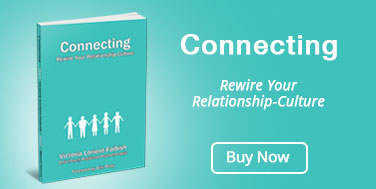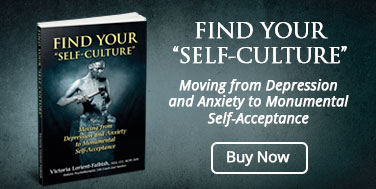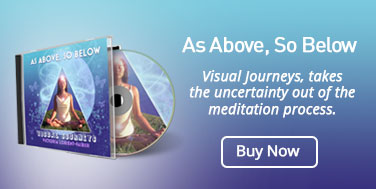In Canada’s multi cultural landscape, the question “Where are you from?” is a common one as we Canadians are fortunate to have embedded in our very matrix the ability to maintain our country of origin’s culture while also meshing with the Canadiana flavours. We are not the melting pot like our neighbours to the south in which the citizen is almost forced to abandon their home culture and exclusively melt into the American way of life. We are a country full of culturally rich neighbourhoods which make the urban landscapes dense with diversity and multicultural splendour. This paradigm empowers the various immigrant populations to remain in a familiar culture that undoubtedly makes the transition to Canada a much easier one. However it can confuse the newer generations that are born here.
As a psychotherapist and the daughter of immigrants myself I know that the dissonance between the new and the old cultures can be very difficult. I see many clients coming into my office with deep issues of cultural confusion. It can be a torture for many who come from deeply traditional families that have long held expectations of the children to act in ways in which the elders and the family are the main priority. Often these expectations overpower the needs and wants of the more modern new generation person which now not only has the parental culture coursing through them but also everything they learned at school, from friends and from the media. This cultural divide can torment the person to feel deep guilt and deep conflict.
The reality is that there is no way around the mountain of pain and discomfort of defining one’s own “culture” in the face of a strong and traditional family. This does not mean total amputation of the family culture at all. But there will be a period of adjustment that is needed in order for a new normal to come about. The joy that one will derive from living one’s own “self cultural” truth will be matched to be sure by the conflict that may ensue from that process. But the thing to hold on to is the very real fact that you are the one living your life. No one can live that for you. True joy comes from unearthing the true self from the depths of your soul.
Total self sacrifice in favour of the family’s well being will not lead you to feeling joyfulness in your life. It will lead to depression and resentment and eventual embitterment. It is important to be true to yourself no matter what. I see so many not living authentically and suffering terribly as a result. There is a true struggle within. There is a deep want to be the authentic self, yet they contend with their beloved family who puts so much pressure to conform and to fall into the culture of origin way of being. There is the mistaken thought that guilt can be avoided by not disappointing and displeasing the family if they obey the rules. But the self sabotaging consequences are far reaching and profoundly self destructive.
It is key to do some deep emotional mining in order to see if you are feeling resentment with your present situation. Ask yourself if you are feeling deprived of living your authentic truth due to the culture that your family embodies. Are you giving all of yourself to the family culture leaving very little left for yourself? If yes is the answer, the first thing to do is to work on conquering the guilt of establishing your own empowered voice and your own definition of your own “self culture”. At the top of the list in overcoming guilt is giving yourself permission to be different from your family. Tell yourself that it is actually healthy to establish your own way of being. Many spiritual texts expound on the benefits of being true to one ’s self. Also what will help your guilt is to establish what is reasonable for yourself. That is, what are you reasonably able to commit to in terms of dedication to your family and its culture? Be brutally honest with yourself. If you give more than you truly want to, once again resentment will creep in. Similarly if you don’t give anything at all the guilt will do its damage as well. Thus it is a dance that you will need to analyze often and honestly. Meditate often and visualize on who you are really. Have the courage to listen to the authentic voice within.
Begin to journal on the question: What is my own “self culture”? This may be a mixing of your own “self culture” plus some of what you have inherited from the family culture. It is your own unique blending and meshing of the two worlds. What are your preferences in life? What is most satisfying and most comfortable for you? What will make you happy? What kind of food do you prefer? What kind of clothes do you rather wear? What is your preferred sleep schedule? Remember you are an adult and you have a right to live the way you want to. It is after all the journey toward minimizing resentment and guilt and toward increasing joy.
Also it is important to remember that all of this brings with it responsibility as well. This is not permission to wage a full scale rebellion against your parents and the culture you come from. That would indicate you are coming from your child self that feels like it needs to revolt in order to establish boundaries and preferences. Instead coming from the adult self means knowing you do not need to be aggressive in your bid toward self hood. You accept it as a fact of knowing and act accordingly in peaceful, non defensive ways to establish the new normal of your own “self culture”. Do your own inner work on this before announcing it to anyone. I firmly believe that doing versus telling is the best way to engage in new behaviours.
It is my experience that parents truly want what is best for their children and coming to this country was part of that intention. So trust that this journey into defining your own culture will eventually be accepted by the old guard. Be mindful that this may not occur very quickly or very easily. But time has a way of doing its healing work.
Soon you will be in a life of your choosing in which you are high top of your own priority list and your family is still a blessed part of your life. This balancing act is so needed in the face of your development as a reasonable adult that is facing the world on your own terms.








